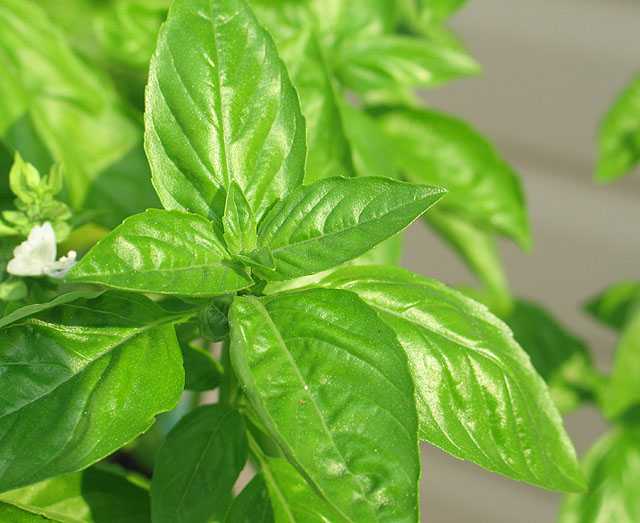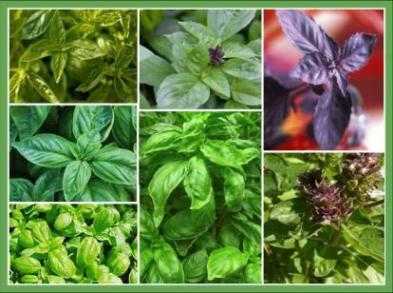Fanfare!! Our order system is being upgraded!!!!!!
After much effort by Amir, webmaster of the EasyFarm system, from this weekend our order system will undergo renovation, plastic surgery, rejuvenation and reorganization, which is why over Friday the system will be closed while Amir makes final touches. Beginning Saturday, you may begin working with a renewed and friendly system. Enjoy!
Thanks for your patience and cooperation.
_________________________________________
This past Monday, June 21st, was the first day of summer, and our field is celebrating wildly with abundant sweetness and joy: melons and watermelons, corn and pumpkins of all varieties and colors, and… our honored scented Guest Vegetable of the Week!
Summer exudes the aroma of the ocean, the swimming pool, and suntan lotion. It carries the fragrance of ripe fruit – melon, figs, grapes, overripe peaches, and more. In our packing house, summer has a very distinct aroma of basil. When the basil-laden boxes stand in the packing house, it is hard to ignore the heady scent in the air that spurs the taste buds to fantasize on pesto.
After some years in which we grew basil and were burned by vicious diseases that attacked and destroyed any green leaf in the vicinity, we took a break for several years. When we tried again, we failed repeatedly. But last year we decided to try a new disease-resistant (or so we’re told) basil variety. At the start, we cautiously seeded it in smaller beds, which is why it was an infrequent guest in your boxes. Later, we expanded the planting. And now, the time has come to declare Basil as the aromatic star of this week’s Newsletter!

Basil is an annual plant. In wintertime, it wilts from the cold. Sometimes it can survive the winter if it happens to be a protected indoor plant (in a sunny corner). Basil is quite common in such warm areas of the world as Asia, Africa, Southern Europe, and California. It belongs to the prominent Labiatae family, but unlike some of its local celebrity cousins like hyssop, lavender, sage, thyme, mint and others, basil does not grow wild in Israel. It is very common as a cultured growth in nurseries, where it grows easily, so long as it receives at least six hours of sun daily.
Although it is a celebrated insect repellent (more on that later), growing basil is not an easy task due to its susceptibility to leaf diseases, specifically the Peronospora which attacks the leaves and causes them to blacken and wilt. Which is why most of our attempts at growing basil in the past involved a very small yields, and a major amount of disappointment. Last year we were informed of a new species, Prospera, developed in Israel by researchers from Bar Ilan University and the Israeli seed company Genesis. So far, from our experience with this and last year’s yields, we are satisfied by the results. Let’s hope this new variety allows us to go back to regularly growing summer basil and to return that heady fragrance to Chubeza’s summer boxes!
There are various explanations as to its name. Perhaps basil is named for the basilica, an elongated church structure where quantities of basil were grown in its nurseries. Perhaps it comes from the word Basilus, Greek for “king,” a title possibly earned by its plentiful medicinal properties. In Hebrew and Arabic, it is Rechan, to mark its powerful fragrance (“re-ach”). The word Rechan appears in Midrash Konen (Brayta d’Maase B’reshit): The third temple is constructed of silver and gold and all sorts of gems and jewels, and it is very large and all the goods of heaven and earth are there. And all varieties of sweet delicacies and varieties of fragrances and varieties of rechan are planted there.
Folklore attributes the name to a menacing dragon named Basilia. Anyone who set eyes on this creature died a strange death, prevented only by a magic basil potion. To this day, basil is known as a proven remedy against annoying pests (a tad smaller than dragons….), which is why in Italy and France it is grown on windowsills. An opposing belief held that basil attracts scorpions and their sting as well, which is why it was customary to apply a basil leaf compress to a poisonous insect sting in order to draw the venom. Basil is planted in combined vegetable gardens with the goal of attracting beneficial insects and repelling flies and mosquitos. Planting basil alongside tomatoes and asparagus actually improves their flavor!
Basil also acts as a secret partner in romance. When a Sicilian woman removes the basil plant from her windowsill, it is a sign to her lover that he may climb right up to her room. But it also assists Cupid in other ways: in Southern Italy, girls would don a garland of basil in their hair to signify their innocence and attract beaus. There, basil is actually called Bacia Nicola (Kiss me, Nicholas). A Romantic Italian man wishing to display his love would wear a sprig of basil in his lapel. In India, it is a talisman warding off evil from a couple’s fertility, which is why Indian women cultivate basil around their homes and temples.
The Jews of Morocco, Yemen, Algeria and Tunisia use basil plants (usually purple basil) for their fragrance in the blessing over spices at the Havdala ceremony at Sabbath’s end. Basil’s wide range of varieties include colors from deep green to deep purple, leaves both serrated and smooth, and varying tastes. The one trait all basil types share is its very distinctive fragrance… there is simply no doubt about it!

In folk medicine, basil tea is used to treat stomach ailments, and basil abstract is beneficial for skin diseases. A blend of various herbs and basil is prescribed for insomnia sufferers, and eating basil seeds along with the leaves helps strengthen the heart. The etheric oil found in basil leaves boasts many antibacterial, antiseptic and antifungal virtues. It contains linalool, methyl chavicol, and eugenol which encourage perspiration and healthy abdominal function, treat respiratory diseases and encourage lactation for nursing mothers. Basil also contains vitamins A and C.
Basil tea (8 leaves to one cup of boiling water) eases a cough, soothes gassy intestines, relieves painful gums and menstrual cramps, and keeps blood pressure balanced. It also lulls to bed those who seek a good night’s sleep.
And lastly – how to store basil fresh:
As stated, basil loves warmth and suffers in the cold, which is why keeping it in the refrigerator under 12 degrees will make it turn black and rot. But since it is a gentle green leaf, it will wilt if simply left on your counter.
To lengthen its lifespan, snip off the bottom of the stems just as you would a flower bouquet, and place the garland in a vase or glass of water (3-5 cm). Place the vase in a well-lit space and cover the leaves in a plastic bag with holes for the first 24 hours. Within a few days the leaves will grow roots which will provide your basil with vitality and keep it fresh for a week or more.
So together with our lovely basil, we wish you all wonderful, fragrant, safe days of summer, full of love and good health.
Alon, Bat Ami, Dror, Orin and all of us at Chubeza
______________________________________________
WHAT’S IN THIS WEEK’S BOXES?
*If you received fresh basil this week’s box, we highly recommend taking a close look at the Newsletter text and watching the video on how to keep your basil garden-fresh. Enjoy!
Monday: Melon, green lettuce/lettuce hearts, parsley/coriander/basil, yellow string beans/oval-shaped cherry tomatoes, cucumbers, tomatoes, red/yellow potatoes, beets/carrots, butternut squash/slice of Neapolitan pumpkin, eggplant/zucchini, New Zealand spinach/Swiss chard.
Large box, in addition: Corn/bell peppers, onions/scallions/parsley root, Amoro pumpkin/fakus
FRUIT BOXES: Bananas, watermelon, red apples, pears. Large Boxes: All of the above + peaches.
Wednesday: Green lettuce/lettuce hearts, parsley/coriander/basil, yellow string beans/carrots, oval-shaped cherry tomatoes/corn, cucumbers, tomatoes, red/yellow potatoes, beets, butternut squash/slice of Neapolitan pumpkin/zucchini, onions/eggplant, Amoro pumpkin/acorn squash.
Large box, in addition: Melon/wetermelon, New Zealand spinach/Swiss chard, scallions/parsley root.
FRUIT BOXES: Bananas, red apples, grapes, mango. (Large boxes get larger quantities).
